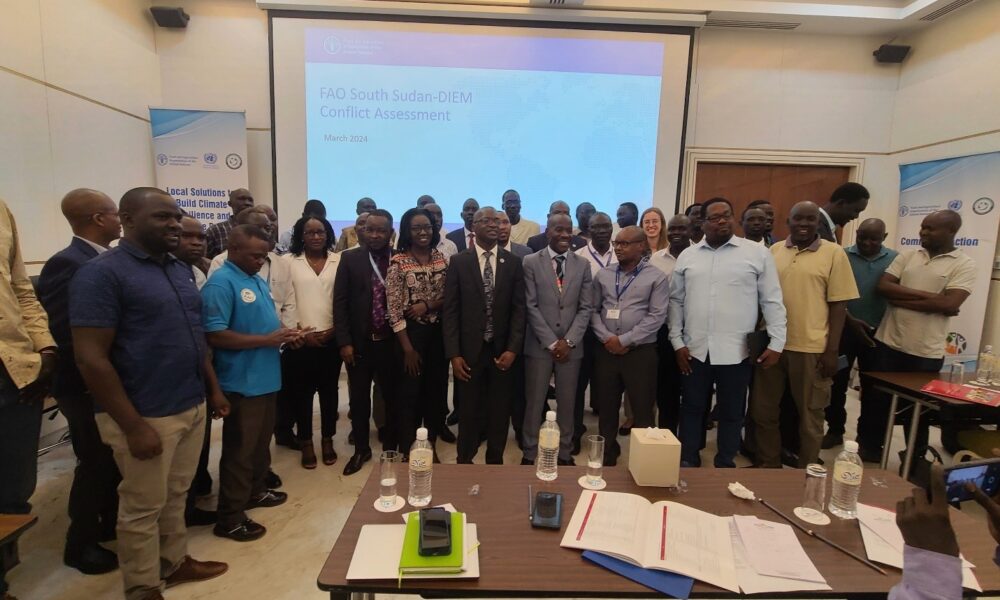By Kei Emmanuel Duku
Absence of peace in South Sudan is negatively impacting the commercialization of the livestock and fisheries sectors, officials said.
Despite having an estimated 36 million livestock, the country still imports milk and other products from neighbouring countries like Kenya and Uganda.
Livestock is highly valued in South Sudan, serving as a symbol of wealth and providing subsistence products for communities. However, intercommunal and political conflicts have hindered the commercialization of the sectors.
Speaking during the launch event of the report on the Impact of Conflict on Food Security and Livelihood in Juba, Meshack Malo, who represented the United Nations Food and Agriculture Organization (FAO), pointed out that farmers, fishermen, and pastoralists are facing difficulties in transporting their produce to markets due to poor road connectivity and multiple roadblocks installed on highways by various security agencies.
Malo highlighted the need for peace to transform and commercialize the livestock and fisheries sectors.
“The major driver affecting commercialization of the livestock and fisheries sector absence of peace but when we have durable Peace we can transform our livestock and fisheries sector, Can you imagine, it’s unfortunate that up until now the country cannot produce any single gram of yoghurt but instead we import fresh milk from Uganda with all the cows we have in the country,” asserted Malo.
Malo noted that fish are dying of old age and not reaching the market due to the lack of transportation and emphasized that conflict has a direct impact on food security.
Between 2013 and 2016, South Sudan produced an estimated 400 metric tons of food during the conflict. However, in 2023, the amount of food produced doubled. Malo, attributed this increase to the Revitalized Peace Agreement signed in 2018.
“Across the country, we have so many fish that are dying because of old age and others are not consumed, these dry fish are consumed mostly by South Sudanese they are excess and not transported to market that’s why we say if there is conflict the immediate impact is felt in food security but if we eliminate conflict we shall have plenty of food to eat,” added Malo.
For his part, Louis Pia, the Undersecretary of the Ministry of Peace Building attributed intercommunal conflicts and cattle raids to low levels of literacy and the cultural prestige associated with owning many herds of cattle.
Pia highlighted the importance of value addition, market creation, and providing training to youth engaged in cattle rearing and fisheries.
“We should first start by targeting those youths who are in the cattle camps with refrigerated trucks, teach proper methods of milking cows, create access to markets in Juba, if it means making it a law by banning foreign milk we shall do it and the same applies to the Livestock industry,” explained Pia.
He also appealed to the World Food Programme’s School Feeding Program to buy milk and other food items locally, creating employment opportunities and reducing armed confrontations among youth.
James Nayieck, the Chairperson of the Peace Commission and Representative of the Reconciliation Committee-Greater Pibor Administrative Area, mentioned that there have been community sensitization efforts that contributed to a reduction in cattle raids.
However, cases of cattle raids by armed youth have resurfaced, driven by poverty and the negative impacts of climate change.
Nayieck suggested community dialogues between Eastern Equatoria, Jonglei, and Greater Pibor states to promote peaceful grazing and farming.
“I don’t think the idea of mobile refrigerators will work out for now, because our cows are not producing much milk, they have stressed too much long distances of moving from one place to another, we also don’t have water and Pasture,” said Nayieck.




